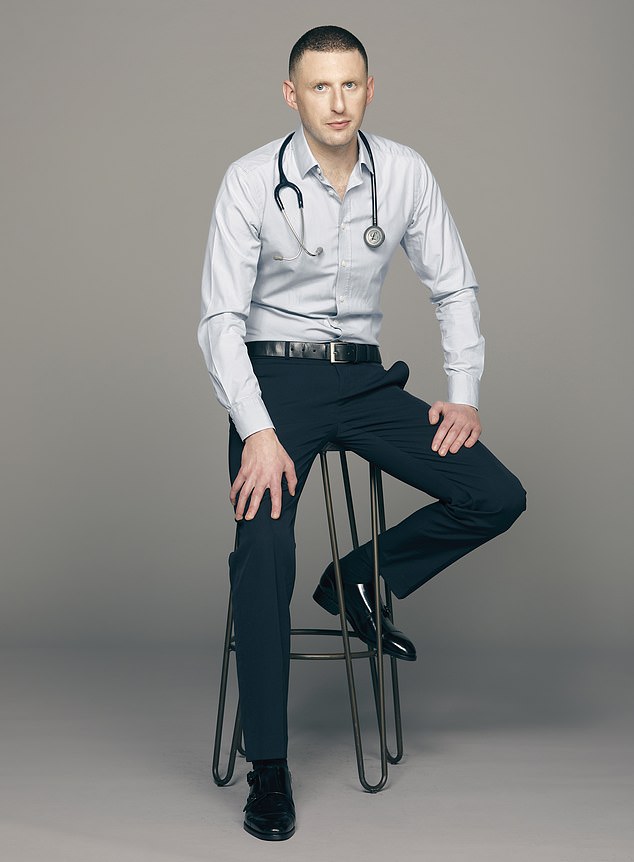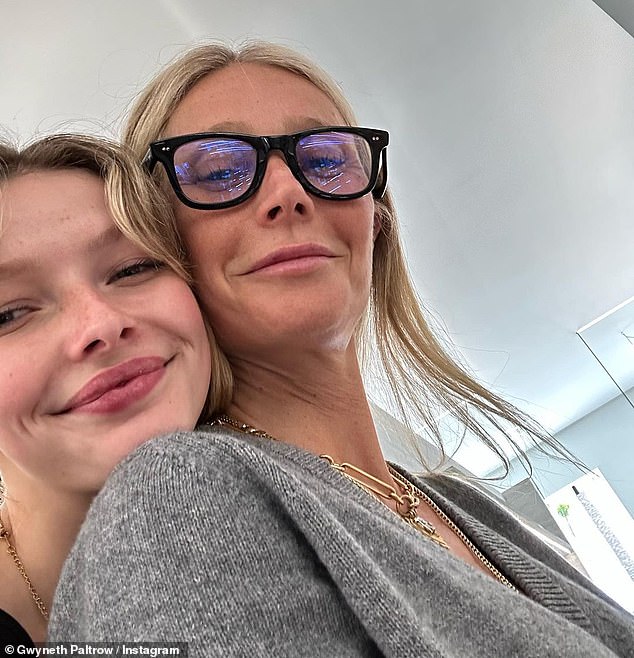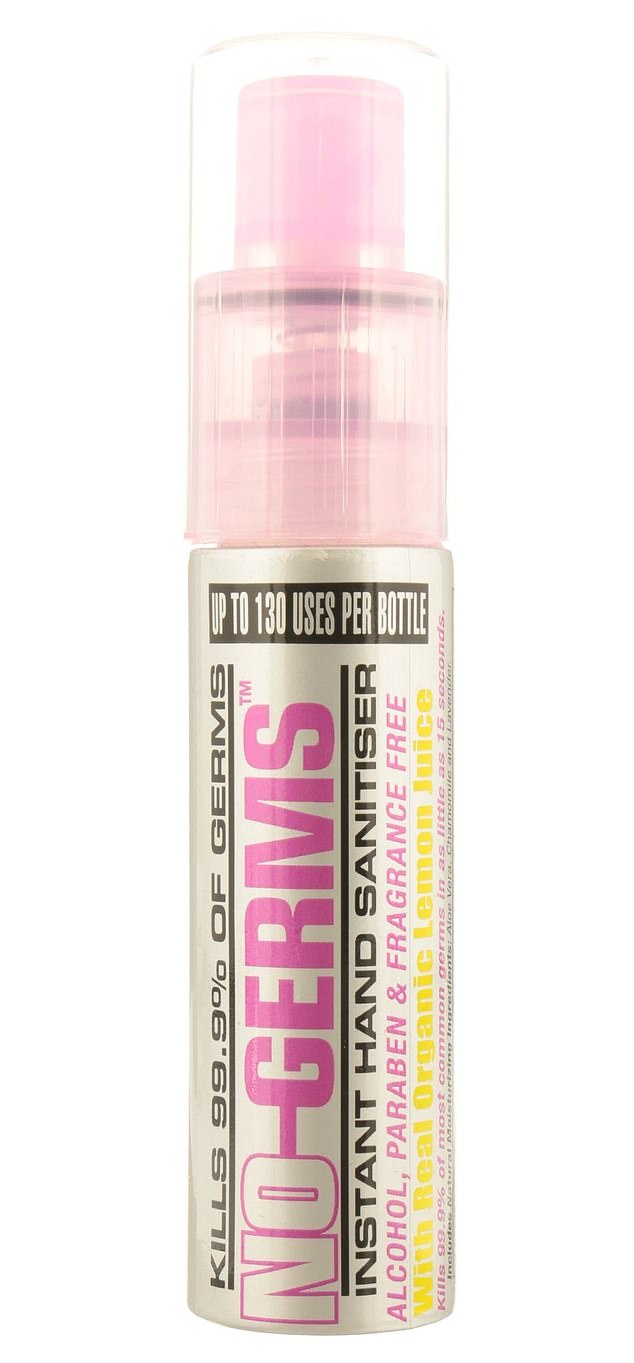DR MAX PEMBERTON: Why that grumpy man you love might need help
While not entirely unpredictable, it is sad to admit that physicians have their own unconscious biases that can influence their clinical decisions. They are human, far from infallible and not immune to prejudice.
So I was fascinated when I read about ChatGPT and the treatment of depression in a study in the BMJ last week. Researchers have found that the AI tool is better at diagnosing and treating depression than general practitioners. The reason? The chatbot does not distinguish between genders or class when prescribing medicines and therapy. Instead, it took into account everything the person described and faithfully followed national guidelines when it came to diagnosis and treatment.
Isn’t that what doctors do too, you would think? Although we try, the reality is that we don’t always succeed.
What this research really exposes is the significant variation that exists in who is and who is not diagnosed with and treated for depression.
Studies have shown that although mental illness accounts for almost half of all ill health among those aged 65, only a quarter of people who need treatment actually receive it. This means that almost three-quarters of mentally ill people are never treated.
I was fascinated when I read about ChatGPT and the treatment of depression in a study in the BMJ last week. Researchers have found the AI tool is better at diagnosing and treating depression than GPs (stock image)
And further research carried out by the University of Aberdeen has shown that GPs failed to even diagnose major depression in half of their patients, meaning they went untreated. It is disturbing to think that there are such large segments of the population suffering in silence.
You are much more likely to be diagnosed with depression if, for example, you are under 65, middle class, white, and female. You are also much more likely to be offered treatment. What you say and how you act is also important. You are more likely to be diagnosed if you say things like feeling ‘sad’ or ‘down’, or if you cry.
While these may be symptoms, there are also other indicators that doctors often ignore.
Men often present with a lack of interest, irritability or physical problems, such as a lack of libido, pain or sleep problems. These are often overlooked, yet are well-established symptoms.
Some of the highest rates of underdiagnosis occurred among older men, who also have the highest suicide rates.
When it comes to antidepressants, we overprescribe them to some groups, such as young women, who may be better served with psychotherapy, while failing others. Middle-aged to older men prescribe the lowest number of antidepressants, yet have one of the highest rates of psychological complaints.
Also consider that half of elderly people with depression have no history. This ‘late-onset’ depression often has subtly different symptoms than those in young people, which can make it difficult to recognize.
These patients tend not to complain about ‘feeling sad’, but prefer not to enjoy life. They often become more preoccupied with physical health symptoms and develop anxiety or OCD. In more than 70 percent of cases, there is evidence of poor memory or thinking skills, which often resembles dementia (a condition called pseudo-dementia). As a result, depression is all too easy to miss.
Doctors simply don’t think of depression when they see an old person; There is an unhelpful and incorrect stereotype that older people are a bit grumpy and that is normal.
Even if you are diagnosed with depression, the treatment offered will vary depending on who you are and where you come from.

DR MAX PEMBERTON (pictured): Further research carried out by the University of Aberdeen has shown that GPs failed to even diagnose major depression in half of their patients, meaning they went untreated
Four in ten people over the age of 75 suffer from depression, but only 3.5 percent of cases are referred for therapy. Instead, we only prescribe antidepressants, despite the fact that older people are at greater risk of serious side effects and complications from these types of medications.
It’s pure ageism, based on stereotypes that older people ‘won’t change’. Yet there is good evidence that older people respond equally well to therapy; some studies show that they respond better.
We should be shocked by this because it shows that despite all the progress in recent years where people feel encouraged to talk about their mental health problems, some people will still not get the help they need simply because of their gender or age need. .
Is the solution a robot GP? Are we doctors about to be replaced by AI? I’m not convinced.
While much of medicine revolves around following protocols and algorithms, patients are complex and we are still a long way from a computer that can understand the nuances of human disease. Despite their shortcomings, I’m not sure that robots will ever replace the human interaction that is the foundation of the doctor-patient relationship, but we all need to work harder to ensure that we serve our patients as best we can. .
Nepotism is never okay, Gwynnie
Gwyneth Paltrow has criticized the use of the term ‘nepo baby’ – the phrase used to suggest nepotism when a child follows in the footsteps of their famous parents, especially in the fields of art, fashion or modelling.
Come on. What this is really about is the unfair advantages that people with wealth and privilege have. You are literally defending a system that perpetuates inequality, Gwyneth.
Now I can’t blame the kids for being born into a family, which means they have it easy in life. But let’s not pretend that it’s fair that simply because of who your parents are, you get access to a career that others can’t.
Paltrow (pictured with her model daughter Apple) went on to say that no one criticizes doctors’ children for wanting to become doctors.

Gwyneth Paltrow, Apple Martin Goop, Gucci and Elizabeth Saltzman host an intimate dinner in the Hamptons, Private Residence, NY, Briarcliff Manor, New York on July 15

Gwyneth Paltrow has criticized the use of the term ‘nepo baby’ – the phrase used to suggest nepotism when a child follows in the footsteps of their famous parents, especially in art, fashion or modelling.
It’s not exactly comparable – getting into medical school requires academic achievement that isn’t necessary to become a model or actor – but young people from poorer backgrounds still face significant barriers compared to those from wealthier families who going to medical school.
I’m a mentor for a program aimed at getting the brightest in some of London’s poorest areas into university. It is an uphill battle for the students. Their schools are failing them and it is almost impossible to gain work experience in a hospital unless you know someone who can pull the strings.
I spoke to the teacher who set up this project and he showed me some depressing research from the London School of Economics; A low-wealth child from a high-income family is 35 percent more likely to be a high earner than a high-wealth child from a low-income family.
And research from KPMG shows that class remains the biggest barrier to career development. That’s something to get angry about, Gwyneth.
Dr. Max writes for…
Hand sanitizer
I know we’d all rather forget about the pandemic, but carrying around small hand sanitizers is something we all wish we could have continued to do to help prevent the spread of germs.
This is alcohol-free and contains aloe vera, chamomile and lavender, which prevents your hands from drying out.

This is alcohol-free and contains aloe vera, chamomile and lavender, which prevents your hands from drying out
